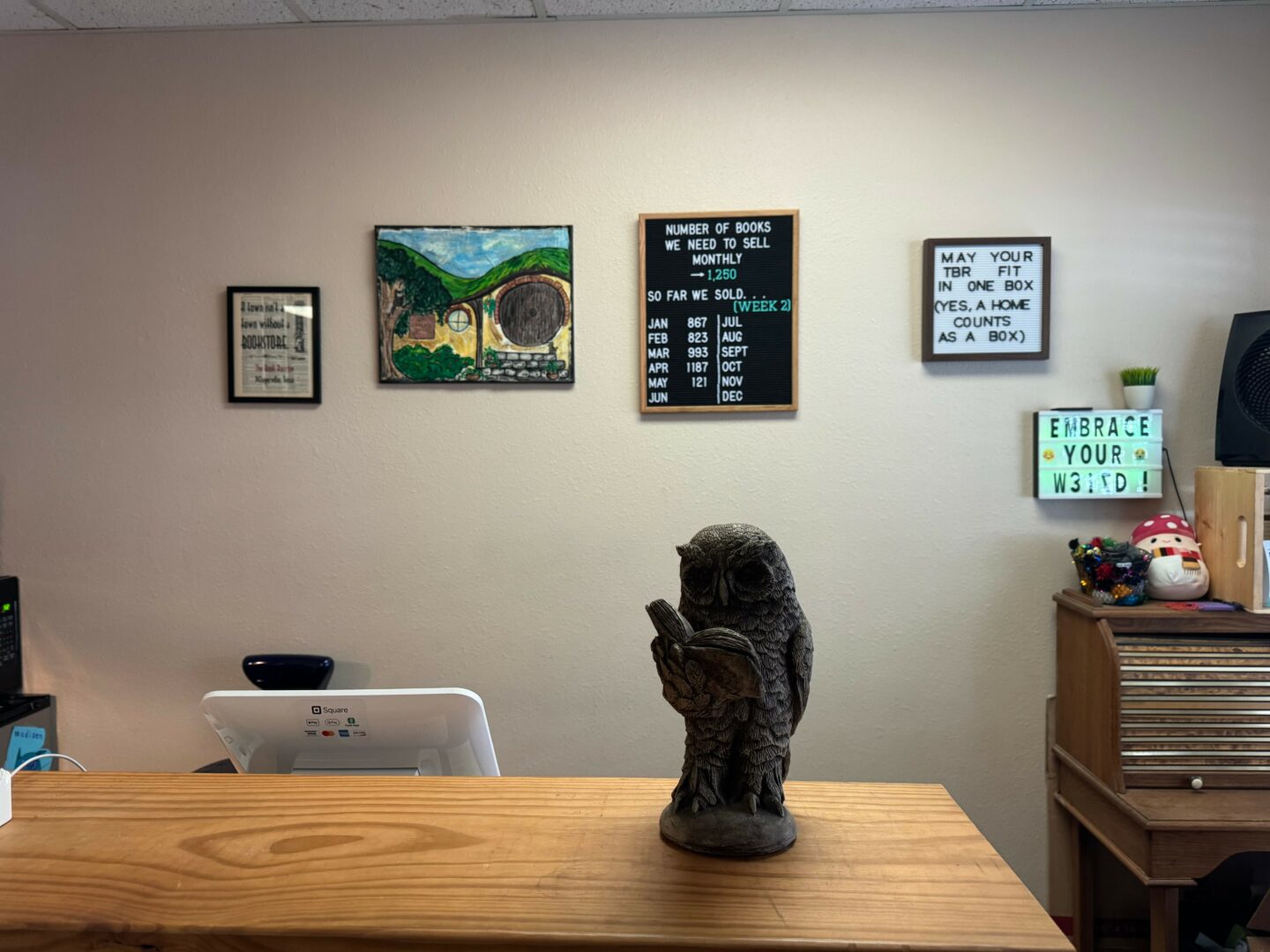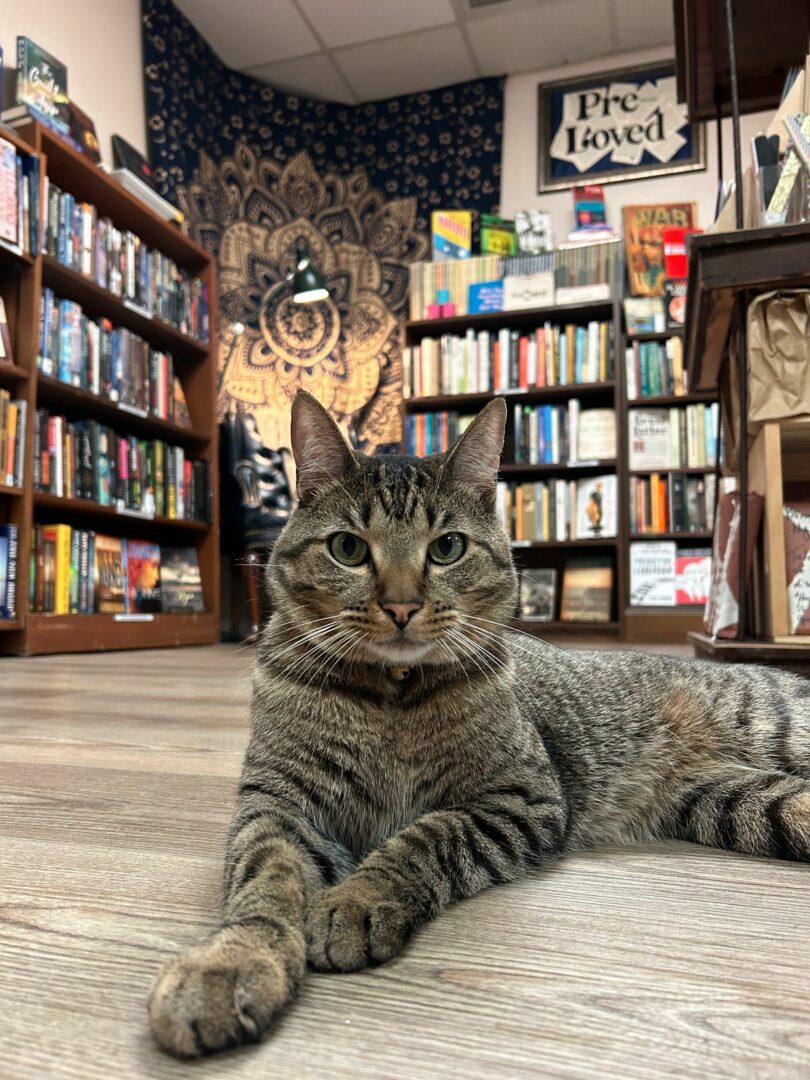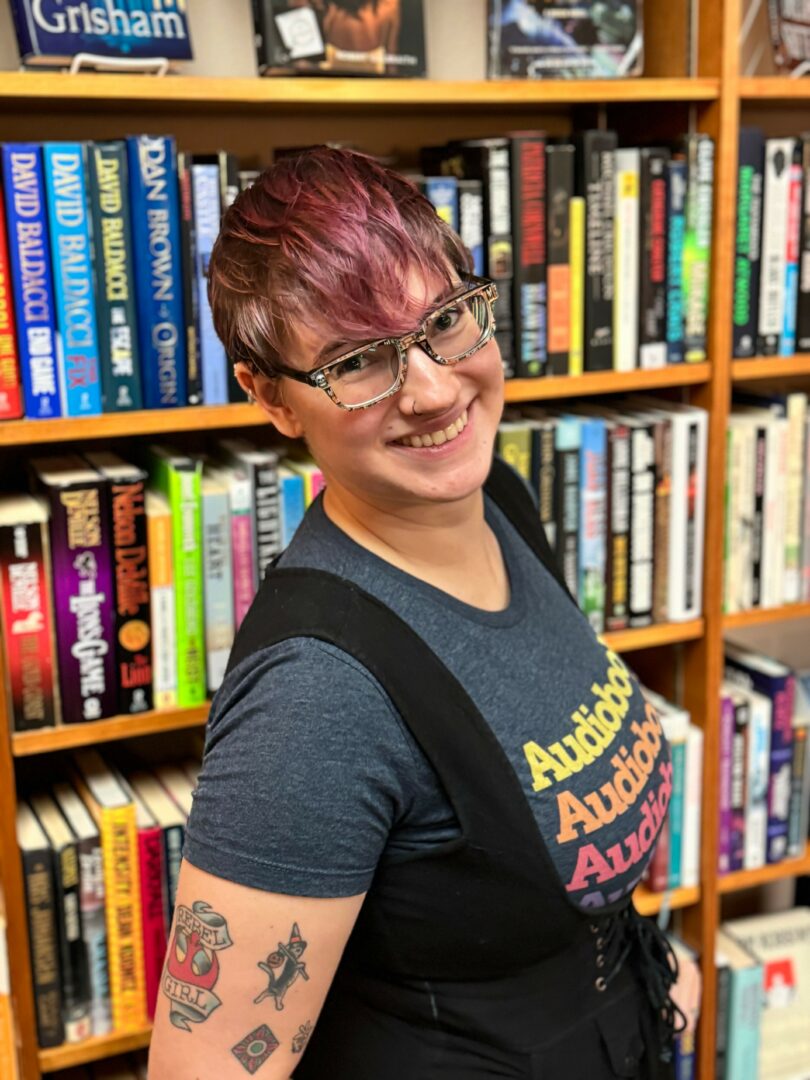We were lucky to catch up with Kelsey Black recently and have shared our conversation below.
Kelsey, so great to be with you and I think a lot of folks are going to benefit from hearing your story and lessons and wisdom. Imposter Syndrome is something that we know how words to describe, but it’s something that has held people back forever and so we’re really interested to hear about your story and how you overcame imposter syndrome.
I didn’t. Overcoming imposter syndrome is impossible – so I embraced it! I have learned it is a powerful and counterintuitive approach, but it can be incredibly effective. Here are my thoughts:
1. Acknowledge Imposter Syndrome as a Normal Feeling
The first step in embracing imposter syndrome is recognizing that it’s a normal human experience, especially among high achievers. Most people, regardless of their success, feel like they don’t fully deserve their accomplishments at some point. Realizing that imposter syndrome is a sign of growth, rather than a flaw, helps to lessen its power.
2. Shift from Avoidance to Acceptance
Instead of trying to push away or dismiss the feelings of inadequacy, lean into them. When you feel like an imposter, accept it as part of the process of stretching beyond your comfort zone. Understand that the discomfort is often a sign that you’re challenging yourself and expanding your capabilities.
Example: Next time you feel like you’re not qualified for a project, tell yourself, “I’m feeling like an imposter because I’m doing something new and challenging. This discomfort means I’m growing.”
3. See Imposter Syndrome as Evidence of Ambition
Feeling like an imposter often happens when you set big, meaningful goals. The fact that you’re striving for something more significant than your current abilities indicates that you’re pushing the envelope. Instead of feeling unqualified, reframe those feelings as proof that you’re aiming high.
Example: When you get that anxious feeling about a new opportunity, see it as a signal that you’re stepping into new territory — exactly where growth happens.
4. Use Imposter Syndrome as Motivation
Instead of letting imposter syndrome paralyze you, use it to fuel your desire to learn and improve. It can push you to study harder, ask more questions, and refine your skills, which over time builds confidence and competence.
Example: Let the feeling of being an imposter drive you to work harder, seek mentorship, or take on more challenging projects. This proactive approach reduces the chances of actually being an imposter by increasing your expertise.
5. Talk About It with Others
One of the most effective ways to embrace imposter syndrome is to discuss it openly with others. Chances are, your colleagues or peers have felt the same way, and sharing these experiences can normalize the feeling and reduce its hold on you.
Example: In a team meeting, share how you’re feeling like you don’t belong or are underprepared for a certain task. This vulnerability can foster connection and support, and help you realize you’re not alone in these feelings.
6. Reframe Mistakes and Failures
Instead of letting failures trigger imposter syndrome, see them as part of the learning curve. Everyone makes mistakes, and even the most successful people don’t have everything figured out. Embrace mistakes as valuable opportunities for growth.
Example: When something goes wrong, instead of thinking, “I’m an imposter,” think, “This mistake is part of the learning process, and it’s helping me build the skills I need.”
7. Reinterpret Your Successes
Often, imposter syndrome comes from dismissing or downplaying your achievements. Start celebrating your wins, big and small, and remind yourself that you’ve earned them. It can be useful to keep a “success journal” where you record your achievements and reflect on how they came about through your effort and skill.
Example: When you achieve something significant, instead of brushing it off, write it down and reflect on the effort you put into it. This helps you build a more accurate picture of your abilities.
8. Shift Focus from Perfection to Progress
Imposter syndrome thrives on perfectionism. Instead of focusing on being flawless or having all the answers, embrace the process of progress. Recognize that it’s okay to not know everything, and that learning along the way is just part of being human.
Example: Set a goal to make progress, not perfection. Celebrate small improvements and milestones instead of expecting yourself to know it all right away.
9. Recognize the Value of “Beginner’s Mind”
One of the core aspects of embracing imposter syndrome is seeing value in the feeling of being a beginner. No one expects you to be an expert in everything, and often the most creative and innovative ideas come from people who are not bogged down by preconceived notions. Adopt a “beginner’s mind” and stay open to learning.
Example: Approach a new task with curiosity instead of pressure. Acknowledge that, even though you may not have all the answers yet, you’re in the perfect place to learn and grow.
10. Practice Self-Compassion
One of the best ways to embrace imposter syndrome is through kindness to yourself. Understand that everyone has doubts and that your self-worth isn’t tied to being perfect or never feeling inadequate. Practice self-compassion and remind yourself that it’s okay to feel unsure.
Example: When you experience imposter syndrome, instead of criticizing yourself, say something kind like, “It’s okay to feel this way. Everyone has moments of doubt, but I’m still capable and worthy of success.”
By embracing imposter syndrome, one reframes it from a negative experience to a signal of growth and challenge. Instead of running from it, use it as a tool for motivation, improvement, and connection with others. Over time, I found that imposter syndrome doesn’t hold the same weight it once did in my life — because I’ve learned to use it as a stepping stone to becoming your best self.

Appreciate the insights and wisdom. Before we dig deeper and ask you about the skills that matter and more, maybe you can tell our readers about yourself?
I started my bookstore about 4 years ago in my garage. I have since built from an online store, to pop-up bookshop, to permanent Bricks and Mortar location. Our first location opened on August 6th 2022 in the back breakroom of another business. We quickly outgrew that space and moved in with our friends at Three Legged Goat in March 2023. After 4.5 months there we moved into our current location on August 1st, 2023 and have been here over a year.
We were founded on the principle that every person deserves to be safe enough to be themselves. It is important, especially in Texas, for all people to see themselves represented in the stories they read. Bookstores have historically been a safe space for political discourse and books are a major catalyst for social change – something that is desperately needed in Texas. We use our store to amplify local voices and to give our community a space to always embrace their weird. Our goal is to build up the community that surrounds the bookstore and create a safe “third place” for all. The “third place” term was coined by US sociologist Ray Oldenburg in 1989. It is a place outside your home or work where you can relax and hang out. These places are where community is fostered, friendships are made, and ideas are discussed.
Our slogan ‘Embrace Your Weird’ encourages us to express what makes us unique. We are here to support those who are just trying to find a home, a Third Place, where they have freedom to express themselves. We like to celebrate the uniqueness of people and we want to give people the tools for the fight we all face to find a place we can call home. We want to show everyone in our community that there are still safe spaces in our community to be themselves.
At The Book Burrow, we go beyond just providing books to our customers. We strive to create a welcoming community where book lovers can come together and indulge in their passion for reading. We believe in the power of literature to spark conversations, challenge ideas, and promote diverse perspectives. So to answer your question. No, it has not been a smooth road. I never thought it would be.

If you had to pick three qualities that are most important to develop, which three would you say matter most?
Flexibility, building a strong support system, and developing resourcefulness have been key elements in my journey, helping me adapt to challenges, stay grounded, and grow as a person. These skills are often crucial for anyone navigating a path that involves growth, change, or overcoming imposter syndrome.
Here’s how these elements have helped me, and the advice I give to others who are working on developing them:
Flexibility has been essential in my journey, allowing me to adapt to new circumstances, adjust to unexpected challenges, and pivot when needed. Whether in my career, personal life, or creative endeavors, being flexible means I didn’t get stuck in a rigid way of thinking. Instead, I learned to embrace change and find opportunities within it, rather than feeling overwhelmed or defeated.
Flexibility has allowed me to step into unfamiliar roles or projects with an open mind, even when I might not have felt entirely prepared. I embraced the discomfort as part of the learning process, instead of letting it paralyze me. Flexibility also helps in handling setbacks. Instead of seeing them as failures, I’ve learned to view them as part of the journey and adjusted my approach to find new solutions. Flexibility has probably allowed you to navigate both personal and professional priorities with more ease. When things get chaotic, the ability to adjust your schedule, plans, or mindset helps keep things moving forward.
My Advice for Others:
Be Willing to Adapt – Flexibility isn’t about knowing what comes next, but about being okay with not knowing and being open to change. I encourage you to shift your mindset from fear of change to curiosity about how new challenges can offer growth opportunities. Flexibility doesn’t mean being reactive or changing course on a whim, but rather being mindful of what’s happening around you and responding thoughtfully. Develop a reflective practice, whether through journaling or discussions with advisors or mentors, to evaluate when and how to adapt. Remember, trust the process. Sometimes flexibility means trusting that things will work out, even if they don’t look how you expected. Plans may not unfold as imagined, but flexibility helps you find new routes that can be just as rewarding.
Having a support system — mentors, colleagues, friends, or family —provided me with emotional resilience, practical advice, and accountability. No one succeeds entirely on their own, and a solid network can make a world of difference in overcoming imposter syndrome, taking on new challenges, and staying motivated. Your network is your net worth. Having people I can turn to for guidance has helped you during moments of doubt. When imposter syndrome hits or when I feel overwhelmed, my support system is there to offer reassurance and perspective. A supportive network also keeps me accountable to my goals, making sure I stay on track. When I have people who encourage me, it’s easier to keep pushing forward even when self-doubt creeps in. When I share my wins with my support system and receive validation, it helps affirm my sense of self-worth and reinforces that I am not alone in my journey.
My Advice for Others:
I encourage you to build genuine relationships by building a network of people who truly care about your well-being and success. It’s not about collecting contacts, but about developing meaningful, reciprocal relationships.
Seek Diverse Perspectives in your support system. You should offer a safe space where different viewpoints can be truly heard. By diversifying your support network with mentors, peers, and people outside your field; you can gain richer insights and find creative solutions to challenges. One of the most powerful things about a support system is the space it provides to be open about struggles. Letting your network see you showing vulnerability and ask for help when needed is empowering to those in your life. The more authentic you are, the more you’ll receive the right kind of support.
Resourcefulness has been a game-changer for me in navigating uncertain situations and limited resources. I’ve learned how to think outside the box, tap into my creativity, and find solutions even when things seem impossible.
Overcoming Challenges with Limited Resources is one of the hardest lessons I’ve learned. Resourcefulness helped me accomplish goals when I didn’t have all the resources or information I would have liked. I’ve learned to make the most of what I have, whether it’s leveraging skills I already possess or finding unconventional solutions to problems. Whether I am dealing with a technical issue, a work challenge, or an emotional struggle, resourcefulness helps me think on my feet and find solutions in the moment. I don’t wait for the perfect situation, I make do with what’s available. Resourcefulness has helped me turn challenges into opportunities. I’ve turned setback after setback into chances to learn a new skill, network with different people, or shift my focus to a new project.
My Advice for Others:
Embrace Creativity in Problem-Solving, especially when you feel like you’re lacking the right tools. Sometimes the best solutions come from thinking outside the conventional routes. Be sure to focus on making the most of the resources you currently have, rather than waiting for perfect conditions. Start with small steps and work with what’s at your disposal — the results will often surprise you. Ask questions and keep learning! Resourcefulness comes from the willingness to ask questions, seek out new information, and learn from others. I understand that being resourceful doesn’t mean I know everything; it means that I am curious and proactive in finding answers.
These skills — flexibility, building a support system, and resourcefulness — are interconnected, each strengthening your character and the skills you possess. Flexibility helps you adapt to challenges, a strong support system provides the emotional and practical tools to keep moving forward, and resourcefulness allows you to overcome obstacles with what you have.
For those who are just starting to develop these skills, my advice emphasizes the importance of being open to change, finding people who genuinely support and challenge you, and tapping into your creativity when things don’t go according to plan. All of these skills are built over time, and the more you lean into them, the more they’ll empower you to take on bigger challenges and realize your full potential.

To close, maybe we can chat about your parents and what they did that was particularly impactful for you?
My parents raised my younger sister and I to ask questions, to stand up for ourselves and hold our own, to be our own people, and when to sass appropriately. God bless ‘em. Stories were a big part of my childhood. My mother retired from teaching to homeschool me and my sister and would read to us every day. I had an Uncle that was a librarian. Books were and are a huge part of my life. Now I get to sell them????? Dream come true!!!!! The Biggest hurdle I have faced in my entrepreneurial journey has been understanding I am not alone in this weird journey we call life. I am a recovering Risk-Taker. What a luxury to be able to afford to take risks in this economy! I don’t have any room for risks in my life. After rent, payroll, inventory, and Credit Card fees, my bookstore makes 0.5% – 1% if at all. Which, by the way, Lawmakers are doing nothing about these outrageous Credit Card fees! The annual amount I pay in Credit Card Fees is over Three times (3x, over 300%) the amount I can take home to be able to save for the future. I can’t build generational wealth and live The American Dream™ if credit card companies steal my earnings as a business owner. Oh by the way, lawmakers are about to vote on this issue. Call your senator and tell them to VOTE YES on the Credit Card Competition Act.
Contact Info:
- Website: https://www.thebookburrowbookstore.com/
- Instagram: https://instagram.com/thebookburrowtx
- Facebook: https://www.facebook.com/thebookburrowtexas
- Other: https://linktr.ee/thebookburrow

Image Credits
Edgar Brown took the picture of Kelsey Black and Kelsey Black took the other photos
so if you or someone you know deserves recognition please let us know here.




